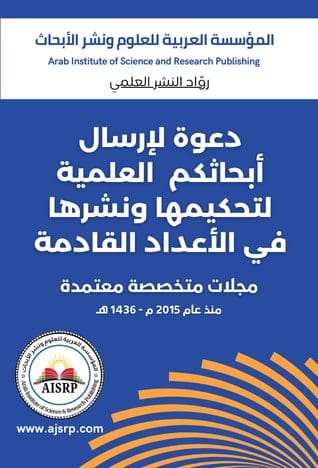Diplomatic Embassy ruling in accordance to Ibn Taymia’s and comparing it to the international law
Abstract:
The present research is to represent a very important topic which is the international relation in general and Embassy as per Islamic law in particularly Ibin Taymia concept has been taken here in consideration. He has been living during the period between seven and eight centuries (661- 728). Such period is a very hard one in the Islamic History as most of Islamic Countries did pass by difficult situation politically, socially, economically, scientifically, and religiously. May trends had been appeared during his age about the international relation, Embassy in Islamic law and individual Embassy as assort of political deed. Embassy had been to appear as a vital tool in the relation among countries. The matters of war, reconciliation, ceasefire, treaties among Muslims and none Muslims do in need for mutual representatives. Those people and their role have given them many concessions and protections in Islamic law. But it was known that they will be subject to Islamic law if they committed crimes and violations against either Allah or civilian’s rights. This is most Islamic sayings as well as Sheik El- Islam bin Taymia. It is to cease these deeds against diplomatic justification.
The diplomatic Embassy as an International Relation will be treated under such concept as it is part of Islamic law which is based on revelation of Allah. The Embassy treatment rule is based on Islamic law. Morals and ethics that are distinguished by consistent and righteousness not like international law. It has laws set for just to serve strong nation and dominance on world. The present research is to represent a very important topic which is the international relation in general and Embassy as per Islamic law in particularly Ibin Taymia concept has been taken here in consideration. He has been living during the period between seven and eight centuries (661- 728). Such period is a very hard one in the Islamic History as most of Islamic Countries did pass by difficult situation politically, socially, economically, scientifically, and religiously. May trends had been appeared during his age about the international relation, Embassy in Islamic law and individual Embassy as assort of political deed. Embassy had been to appear as a vital tool in the relation among countries. The matters of war, reconciliation, ceasefire, treaties among Muslims and none Muslims do in need for mutual representatives. Those people and their role have given them many concessions and protections in Islamic law. But it was known that they will be subject to Islamic law if they committed crimes and violations against either Allah or civilian’s rights. This is most Islamic sayings as well as Sheik El- Islam bin Taymia. It is to cease these deeds against diplomatic justification.
The diplomatic Embassy as an International Relation will be treated under such concept as it is part of Islamic law which is based on revelation of Allah. The Embassy treatment rule is based on Islamic law. Morals and ethics that are distinguished by consistent and righteousness not like international law. It has laws set for just to serve strong nation and dominance on world.
Keywords:Embassy, Diploma, Protection, Ambassadors, Proteges, Diplomatic immunity.
الملخص
وتبرز أهمية السفارة كأداة مهمة من أدوات التعامل الدولي؛ إذ إن أمور القتال، والصلح، والهدن، والمعاهدات بين المسلمين والكفار، لا تتم إلا برسل من الجانبين، فمقتضيات وظيفتهم، وضرورة أدائها، جعلت لهم عددا من الامتيازات والحصانات في الفقه الإسلامي، وكذلك جرى العرف في التعامل الدولي؛ إلا إنهم يخضعون للقضاء الإسلامي فيما يرتكبونه من جرائم ومخالفات، سواء في ذلك ما تعلق بحق الله تعالى، أو حقوق الآدميين، على الراجح من أقوال أهل العلم، وذهب إليه شيخ الإسلام –رحمه الله-، سدا لذريعة الفساد، الذي قد ينتشر تحت غطاء الحصانة.
وأحكام السفارة (الدبلوماسية) باعتبارها فرعا من العلاقات الدولية تمثل جزء من الفقه الذي يقوم على الوحي، وترتبط أحكامها بالعقيدة والأخلاق، فتميزت بالثبات والاستقرار، وهو أهم ما تفتقده أحكام القانون الدولي؛ فقوانينه مرتبطة بخدمة سياسة الدول الكبرى، وهيمنتها على العالم.
الكلمات المفتاحية: السفارة.، الدبلوماسية، عقد الأمان، السفراء، المستأمنون، الحصانة الدبلوماسية
الباحثة /
نجلاء بنت محمد برهان محمد نور
قسم الفقه وأصوله || كلية التربية || جامعة الملك سعود || المملكة العربية السعودية
DOI: 10.26389/AJSRP.N160118 عرض البحث كامل عرض العدد كامل



